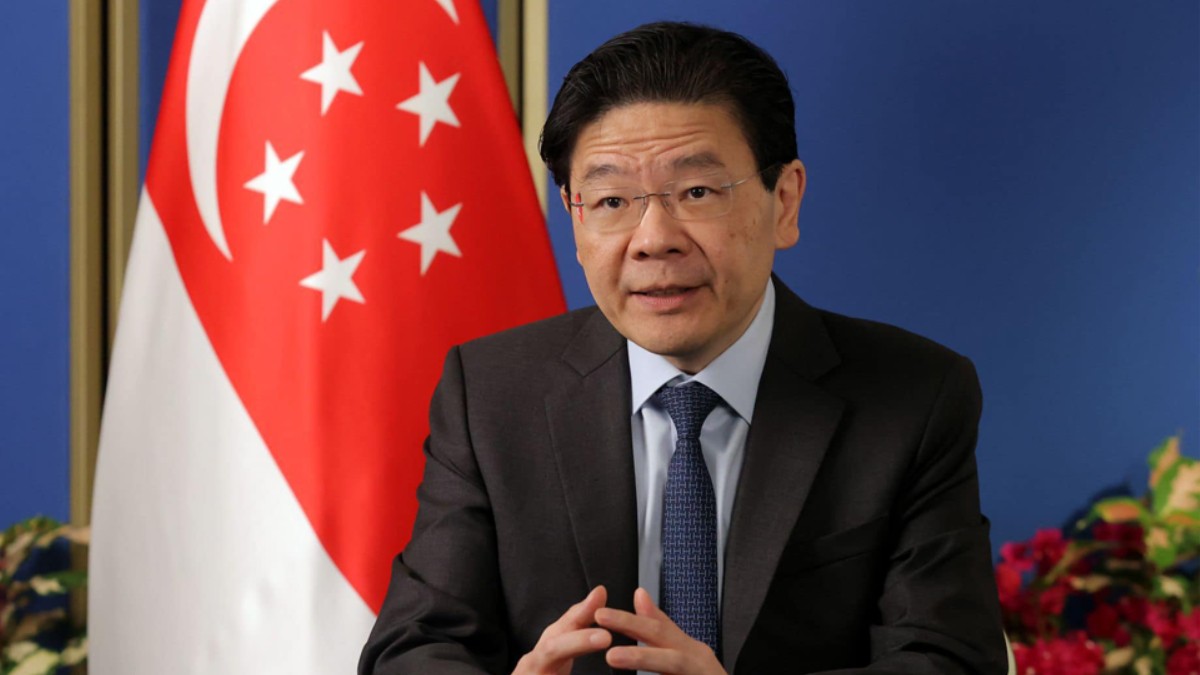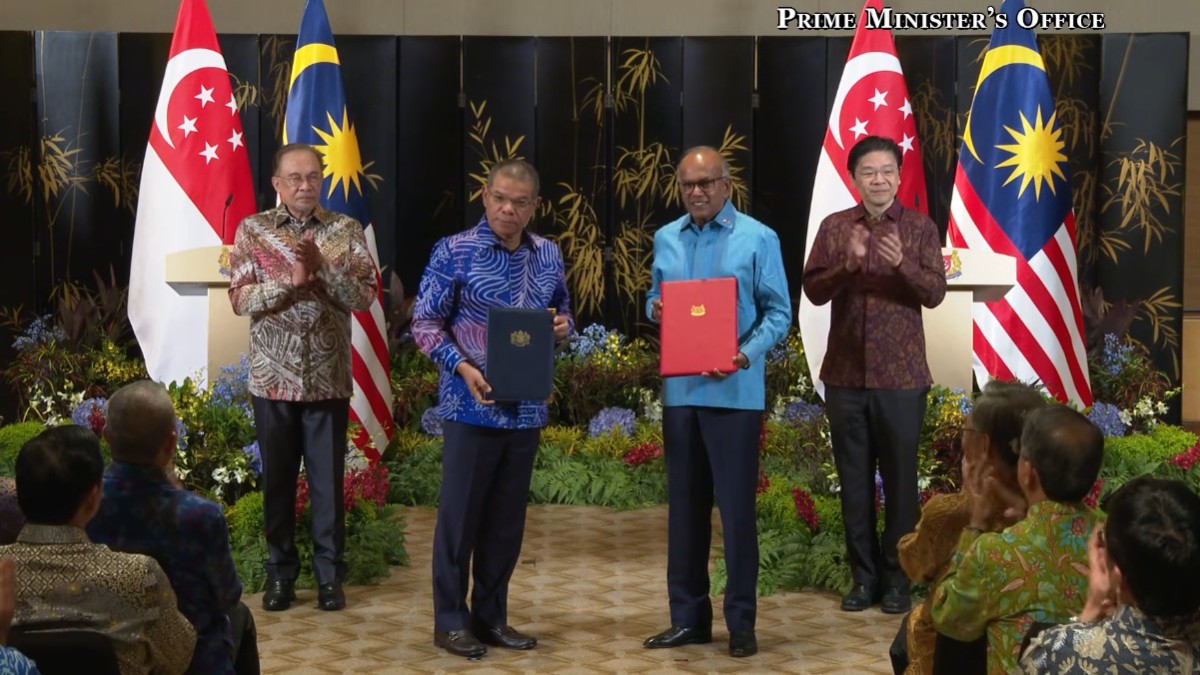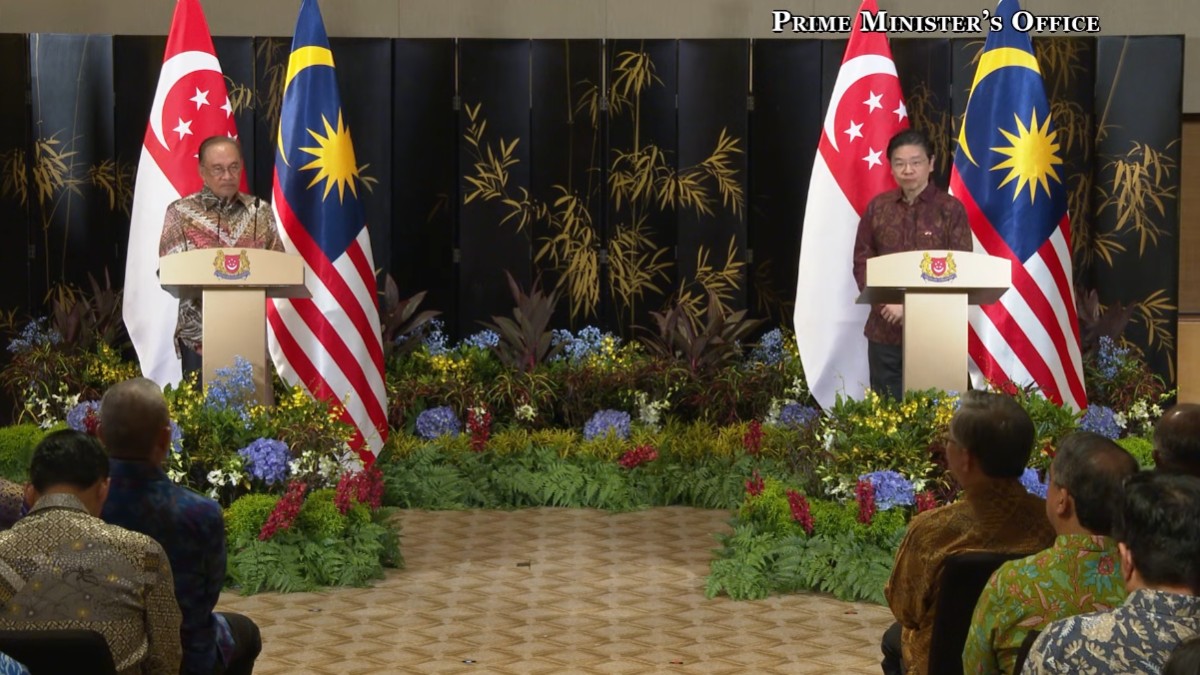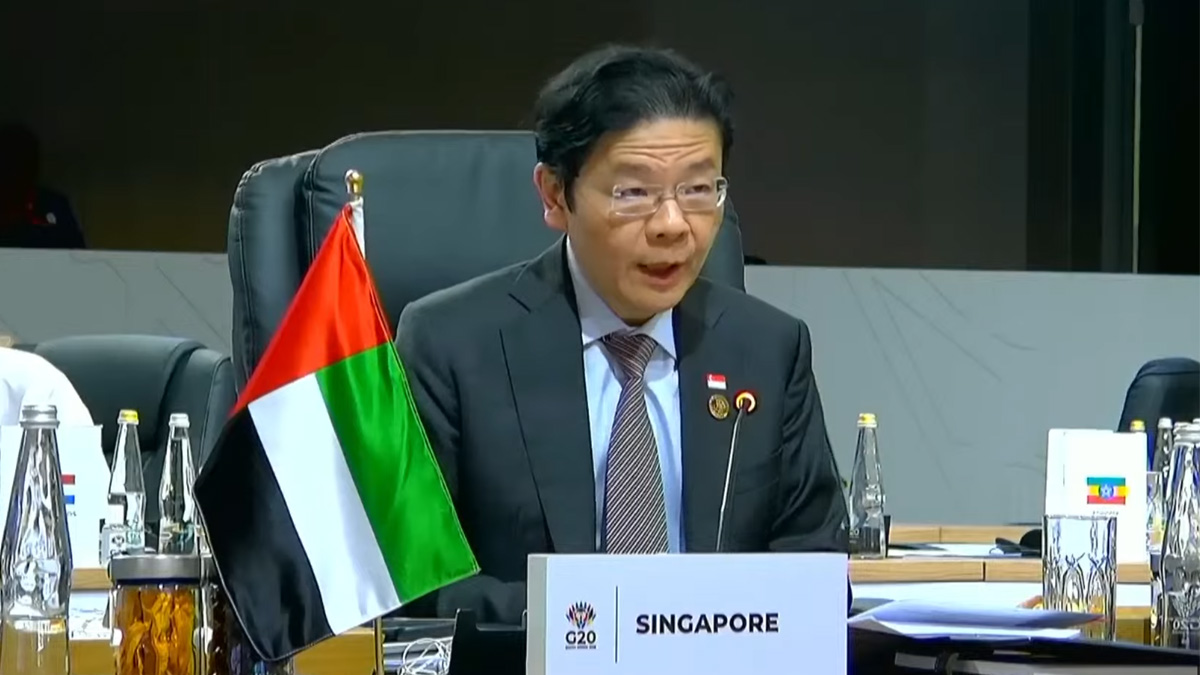Netizens question Lawrence Wong’s ‘toxic politics’ remarks and accuse PAP of double standards
Prime Minister Lawrence Wong’s warning against “toxic politics” at the PAP Convention sparked strong reactions online, with many netizens questioning what they viewed as double standards in political discourse. Critics said opposition parties have a legitimate role in scrutiny and urged for balanced, respectful debate.

- Lawrence Wong urged vigilance against “toxic politics” at the PAP Awards on 9 November 2025.
- Netizens questioned perceived double standards in political rhetoric and parliamentary conduct.
- Online debate expanded to broader frustrations over cost of living, political fairness, and engagement.
SINGAPORE: Prime Minister Lawrence Wong’s recent remarks at the People’s Action Party (PAP) Awards and Convention, warning against “crossing political lines” and fostering toxic politics, have drawn a wave of online responses questioning the government’s framing and perceived double standards.
Several commenters challenged Wong’s rhetoric, arguing that the opposition has a legitimate role in scrutinising government policies. Others said that the Workers’ Party (WP) has responsibly questioned policies on specific issues, comparing its approach to that of “auditors” rather than provocateurs.
Some online users observed that toxic political behaviour is not confined to any one party and urged for a balanced, respectful discourse among all political actors.
Wong warns against erosion of trust and social division
On 9 November 2025, Lawrence Wong, PAP’s secretary-general, told delegates at the party’s annual convention that the PAP must “speak up when political lines are crossed” or risk allowing Singapore’s discourse to become “toxic”.
He cautioned that in many countries, politics had “taken a darker turn”, beginning with “a distortion here, a half-truth there, a little bit of a lie” that gradually eroded trust and fractured societies.
While each instance of misinformation or populism may seem minor, Wong warned that repeated distortions for political gain or the use of race and religion to build support could normalise divisive behaviour.
“Each time this happens, if no one calls it out, it becomes less shocking, more normalised, and eventually, politics turns toxic and society gets divided,” Wong said.
He added that the PAP would continue to call out such behaviour despite criticism that it was “nitpicking or overbearing”.
‘Keeping quiet carries a greater cost,’ says Wong
According to Wong, silence in the face of harmful rhetoric would “push boundaries back a little” each time, worsening the tone of political discourse. “If we cared only about short-term political expediency, it would be easier to stay silent,” he said.
“Speaking up carries some political cost to us, but keeping quiet carries a greater cost to our country, our values, and Singapore’s future.”
Wong did not cite specific examples of political lines being crossed.
Responses from ministers and the opposition
On 8 November, Law Minister Edwin Tong criticised remarks by Leader of the Opposition Pritam Singh regarding his ongoing court case, describing them as “outrageous, plainly wrong and completely unacceptable.”
Singh had commented on CNA’s The Assembly that “the court of public opinion can be bigger than any court in the world,” referring to his conviction for lying to a parliamentary committee and the impact the case had on the Workers’ Party’s performance in the 2025 General Election.
On 14 October 2025, Coordinating Minister for National Security K Shanmugam also addressed identity politics in Parliament, warning against the use of race and religion to mobilise support during the election period.
Wong said that while calling out such behaviour “carries a political cost”, the PAP must “stand firm” and do so “not out of partisanship, but out of duty and responsibility.”
He added that maintaining political integrity required “the best people — both in competence and character — to see it through.”
Online reactions question tone and consistency
Observations across CNA, The Straits Times Facebook page, and Reddit showed recurring scepticism about Wong’s remarks.
Many questioned whether the PAP was applying its standards consistently, citing past instances of aggressive parliamentary exchanges and remarks by ministers that went unaddressed.
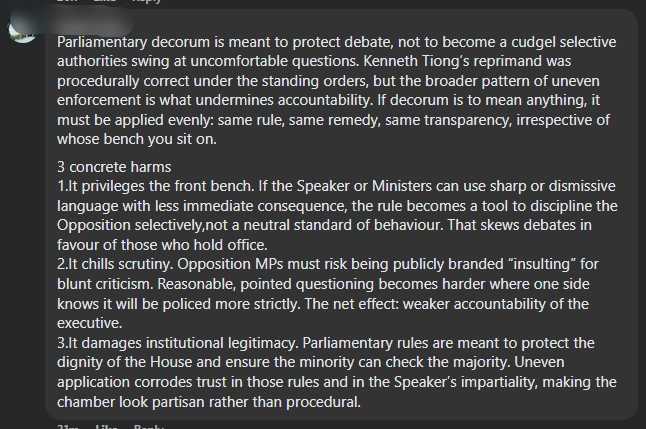
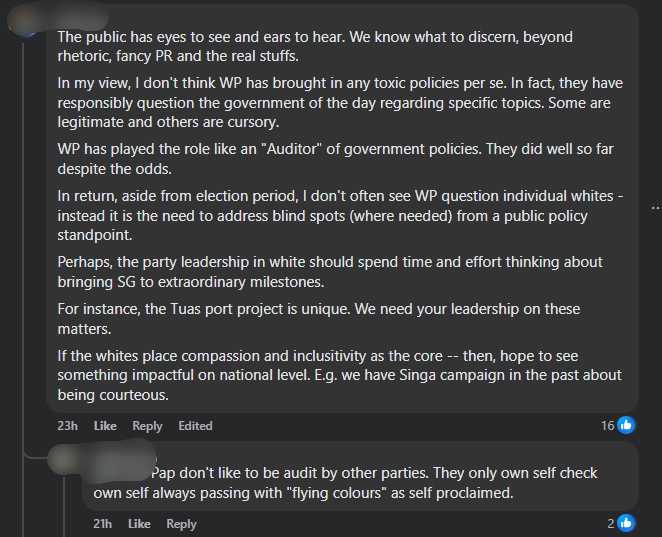


One Reddit user commented, “Each time the PAP calls out so-called ‘bad behaviour’, we accuse you of being overbearing. It’s selective morality.”
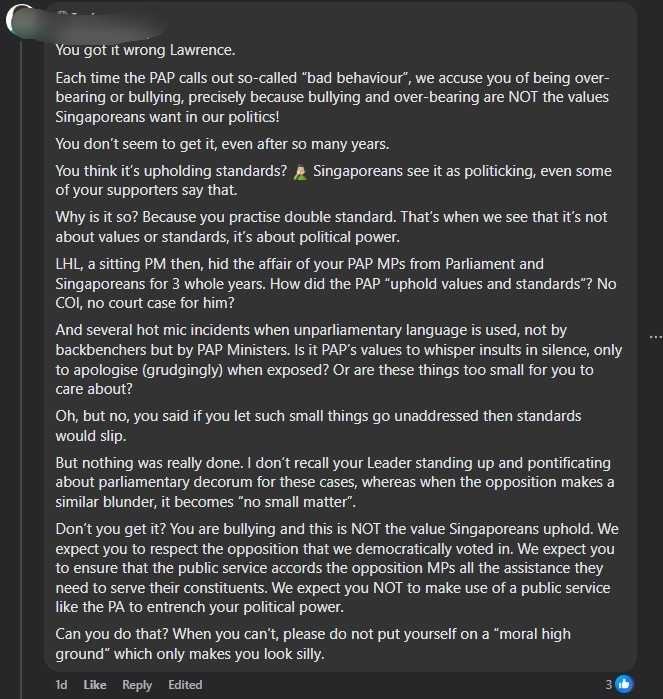
Others mocked the tone of Wong’s comments as moralistic and detached from everyday concerns.
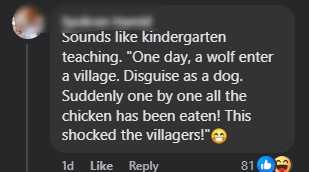
Some said that political trust would only improve if the government addressed underlying frustrations, such as housing affordability, rising costs, and generational inequality.
“The PAP must stop and reflect why there is so much anger among younger Singaporeans,” one user wrote, accusing the government of “fear-mongering” and “election-era incentives” instead of genuine engagement.
Broader questions about political fairness
Redditors and Facebook users linked the issue of “toxic politics” to structural concerns such as gerrymandering, parliamentary dominance, and unequal media access. Several argued that moral appeals to civility would have little impact unless institutional imbalances were addressed.
Many called for the government to prioritise transparent policy-making and substantive debate rather than “moralising about political decorum.”

Pritam Singh responds to criticism
Separately, In a Facebook post on 8 November, Pritam Singh responded to Tong’s criticism.
He noted that the judgment in his magistrate’s appeal had been delivered in February 2025, two months before the general election was called in April.
Singh wrote that the Workers’ Party had “performed respectably” in the polls despite the possible influence of his conviction on voter sentiment.
His remarks about the “court of public opinion”, he said, were not directed at the judiciary but reflected on how political narratives shape perception during elections.
"My case is currently under appeal with judgment reserved," he wrote.


